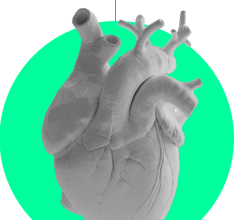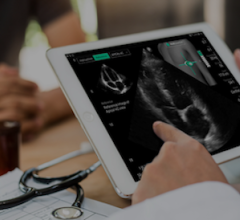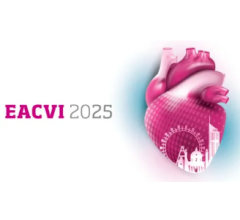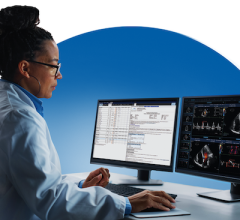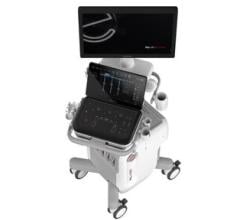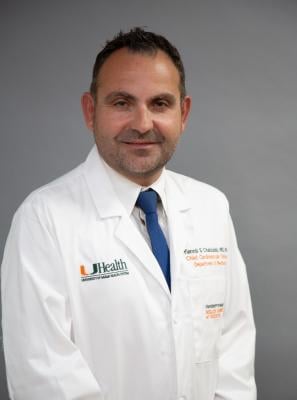
Yiannis S. Chatzizisis, M.D., Ph.D.
October 24, 2023 — In a comprehensive review published in the Journal of the American College of Cardiology: Cardiovascular Interventions, Yiannis S. Chatzizisis, M.D., Ph.D., professor and chief of cardiovascular medicine at the University of Miami Miller School of Medicine, and colleagues show how artificial intelligence (AI), computational simulations and extended reality – collectively called AISER – are providing new tools to improve cardiovascular care.
“AI, simulations and virtual reality are changing the landscape of cardiovascular interventions,” said Dr. Chatzizisis, senior author of the review. “It starts with early decision making to procedural planning, research and development for stents and other devices, and medical education.”
The paper, “Artificial Intelligence, Computational Simulations, and Extended Reality in Cardiovascular Interventions,” published online on October 23.
AI to Improve Cardiovascular Diagnosis and Therapy
While it would be easy to separate each technology into a separate bucket, the review makes the case that AISER tools are intertwined into the continuum of care. The first step is leveraging AI to assist with diagnosis.
Clinicians use a variety of imaging techniques, including MRI, CT and echocardiogram, to assess a patient’s condition. AI has tremendous potential to make image analyses more precise and consistent.
“AI tools such as machine learning and deep learning can rapidly, precisely and accurately analyze imaging data to guide care,” said Dr. Chatzizisis. “Experts perform a similar function, but experts are not available in every hospital. Also, experts can have different opinions. These technologies can take some of the subjectivity out of diagnosis.”
Post-diagnosis treatment also benefits from advanced technology. For example, AI provides added guidance to precisely calculate the severity, length and size of a heart blockage and then determine the corresponding cardiac stent length, diameter and positioning.
Digital Twins Mimic a Patient’s Anatomy
Having captured digital imaging information, cardiovascular teams can then create computer simulations of each patient’s unique anatomy—digital twins.
“There’s a handoff,” said Dr. Chatzizisis. “Having done the stent procedure planning with the AI, we can then practice it through computer simulations on the digital twin, which is particularly helpful for complex procedures. We take it from the body to the computer, and then we can run different treatment scenarios.”
These technologies help cardiologists navigate difficult procedures, but they also bolster patients’ piece of mind. Clinicians can share digital twins with patients and families, showing high-resolution, 3D simulations of their specific anatomy and describing the upcoming procedure.
Digital twins offer developers opportunities to simulate how devices function in the body, allowing them to test almost infinite scenarios. Assessing different devices, designs and materials in a virtual environment can also reduce the costs and time associated with device development.
Virtual clinical trials could speed the process of getting new devices to patients. These trials would be safer, include more diverse anatomies and potentially reduce costs.
Extended Reality and Medical Education
The next step is extended reality, which allows physicians and students to immerse themselves in the digital twin. Augmented reality allows participants to scrutinize anatomical structures while retaining real-world visual cues.
These powerful new tools help train medical students, residents, fellows and other early-career clinicians by allowing them to visualize the blood vessels, the blockage and the stent, including how it is deployed and interacts with the blood vessel.
The technology also supports devices for valvular, structural or peripheral interventions.
A New Center Focused on Technology
Dr. Chatzizisis recently opened the Center for Digital Cardiovascular Innovations to help advance these technologies at the Miller School. This multidisciplinary center unites biomedical engineers, computer scientists, physicians, and biologists in a hub that collaborates with industry and other research centers, and attracts philanthropy and federal funding.
“The Center for Digital Cardiovascular Innovations will create new relationships with industry to accelerate R&D and regulatory approval,” said Dr. Chatzizisis. “There’s a big push by the FDA and NIH to find smarter ways to advance the field, and these digital tools are exactly what we need.”
For more information: https://med.miami.edu/

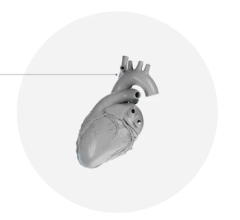
 January 28, 2026
January 28, 2026 
